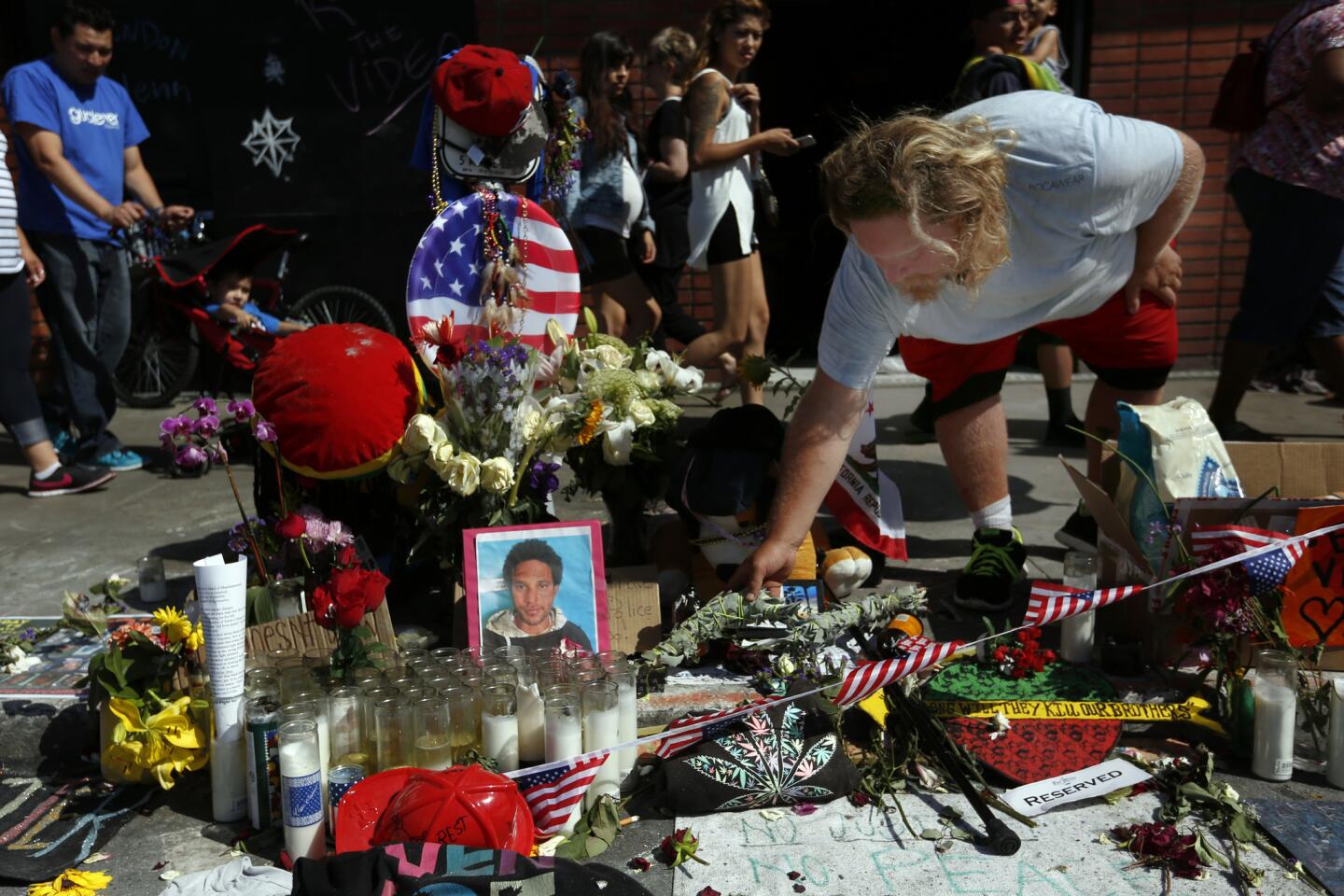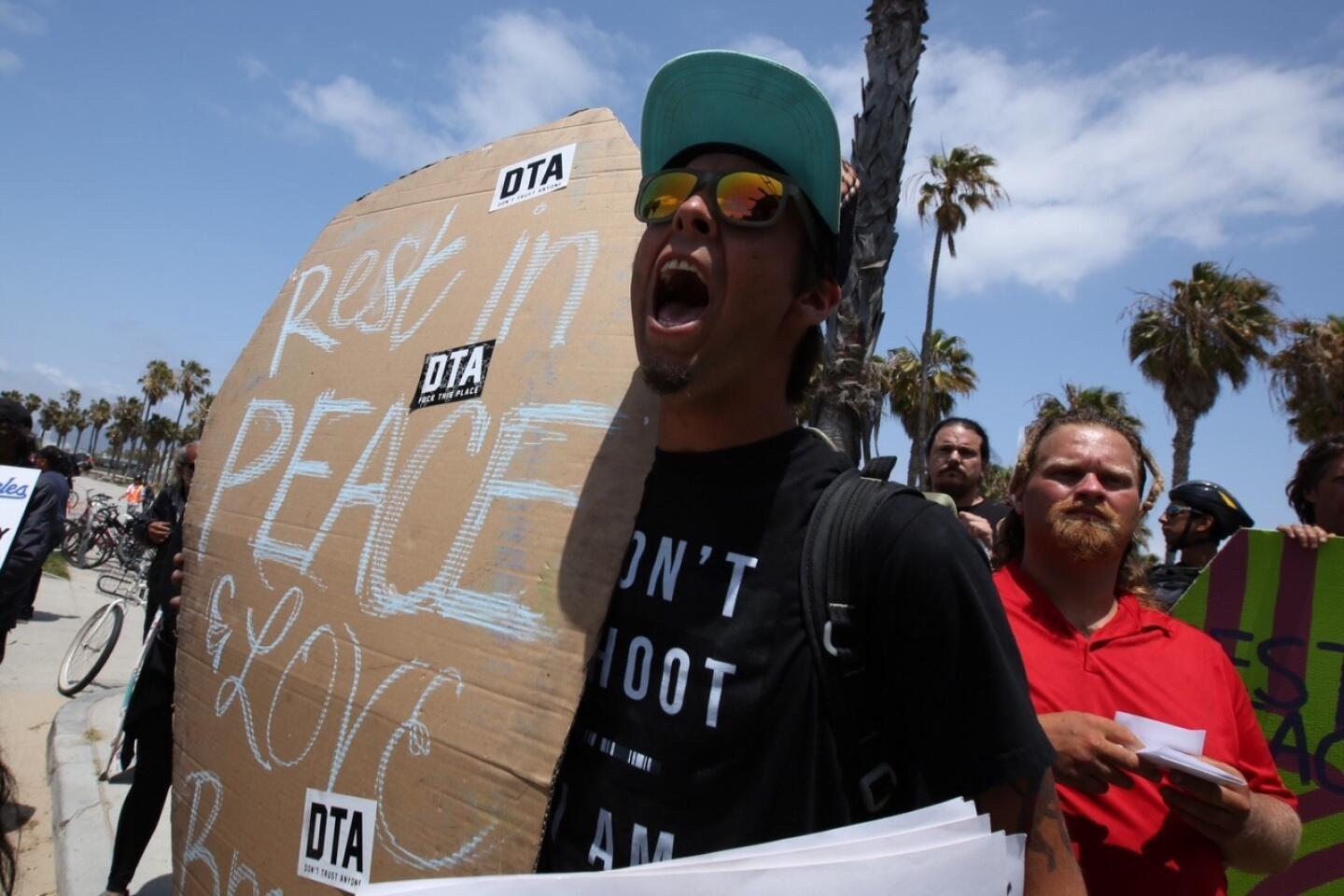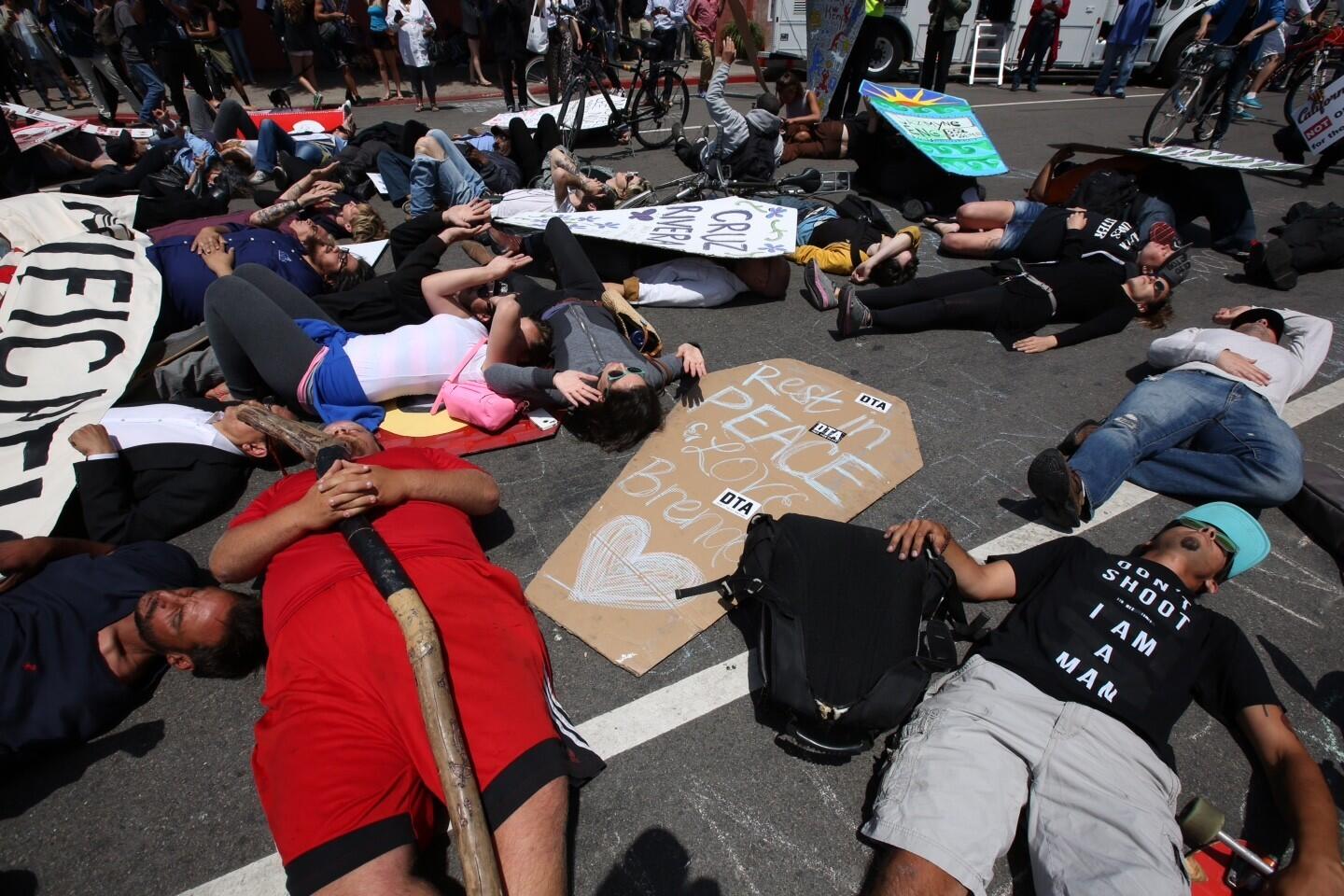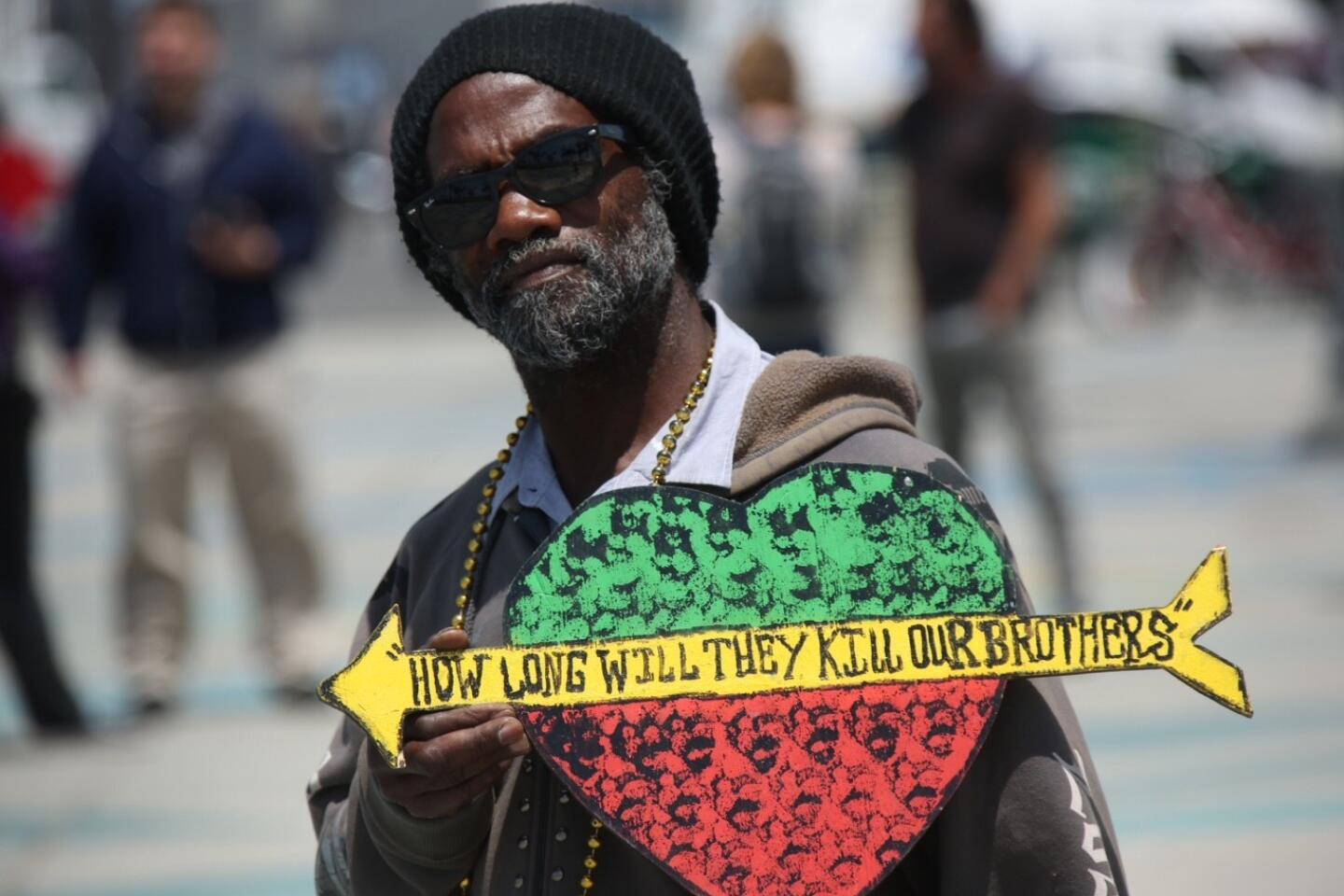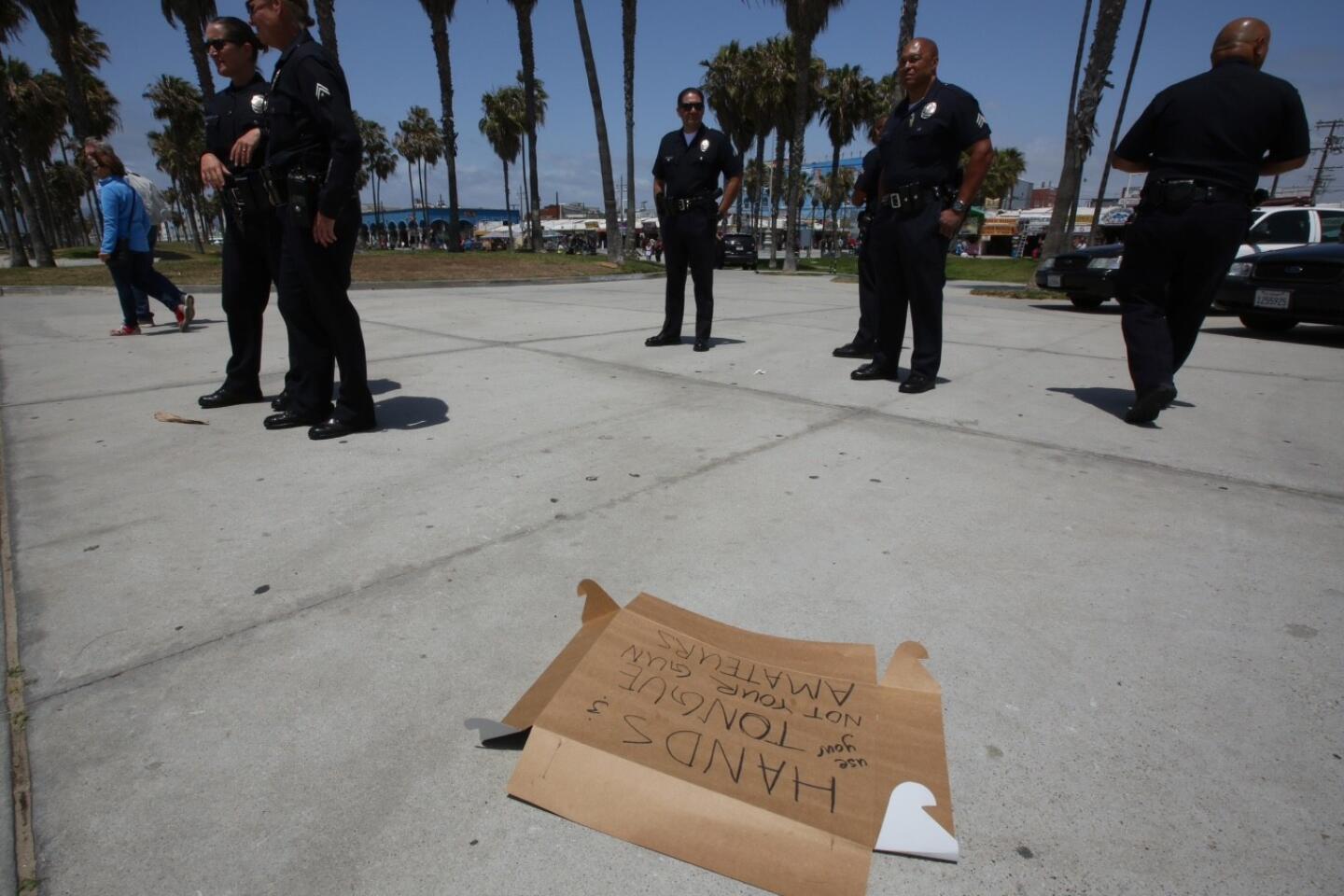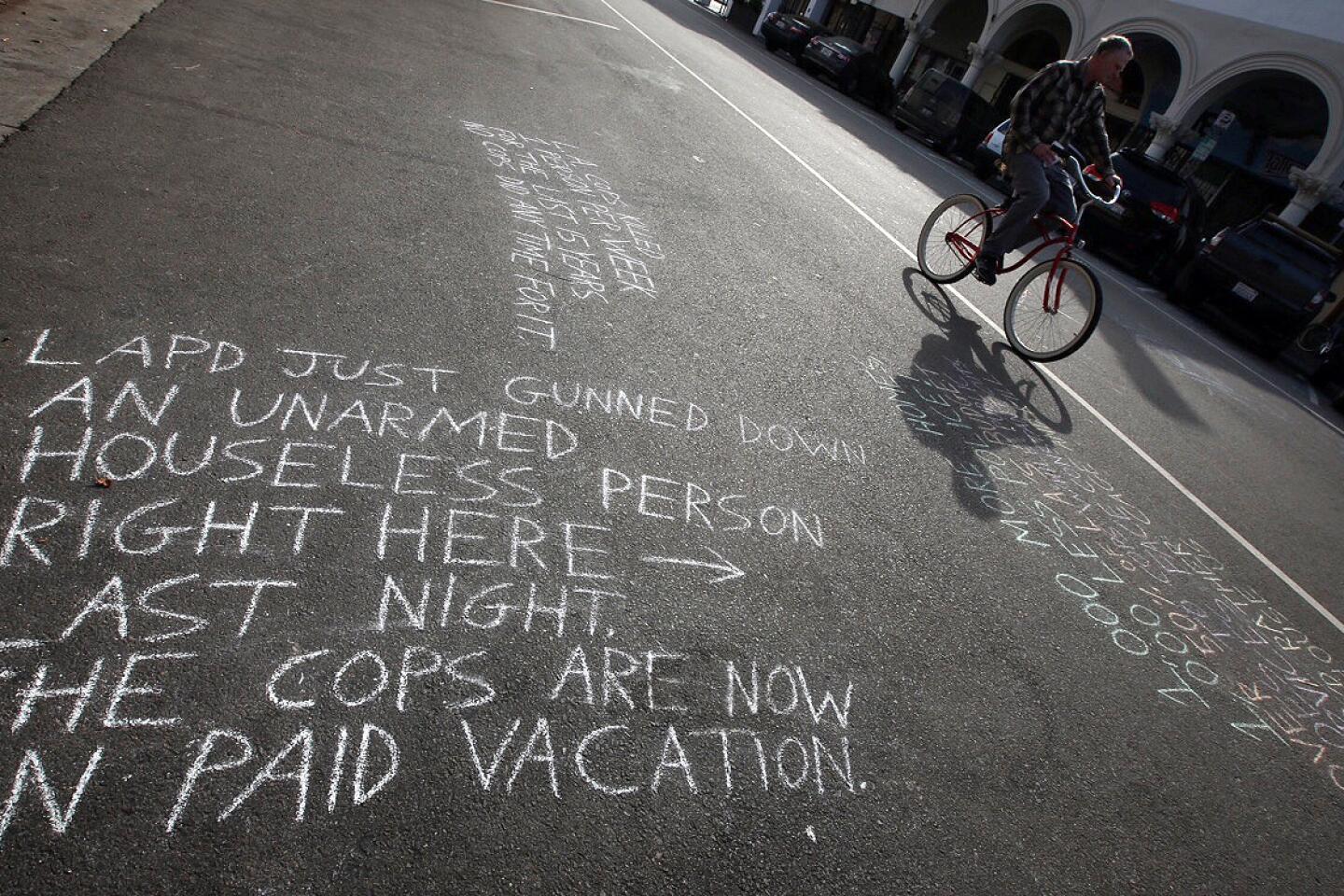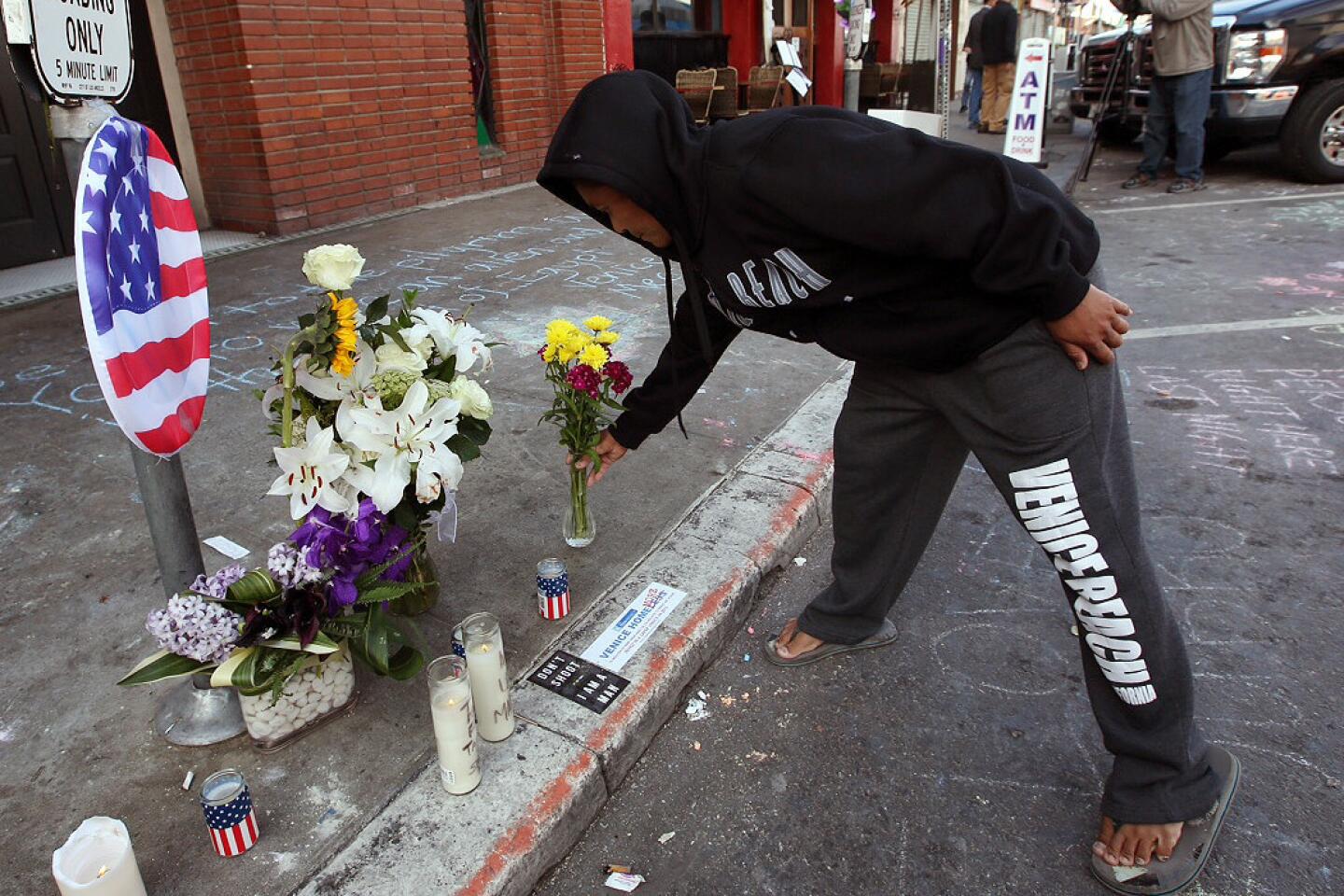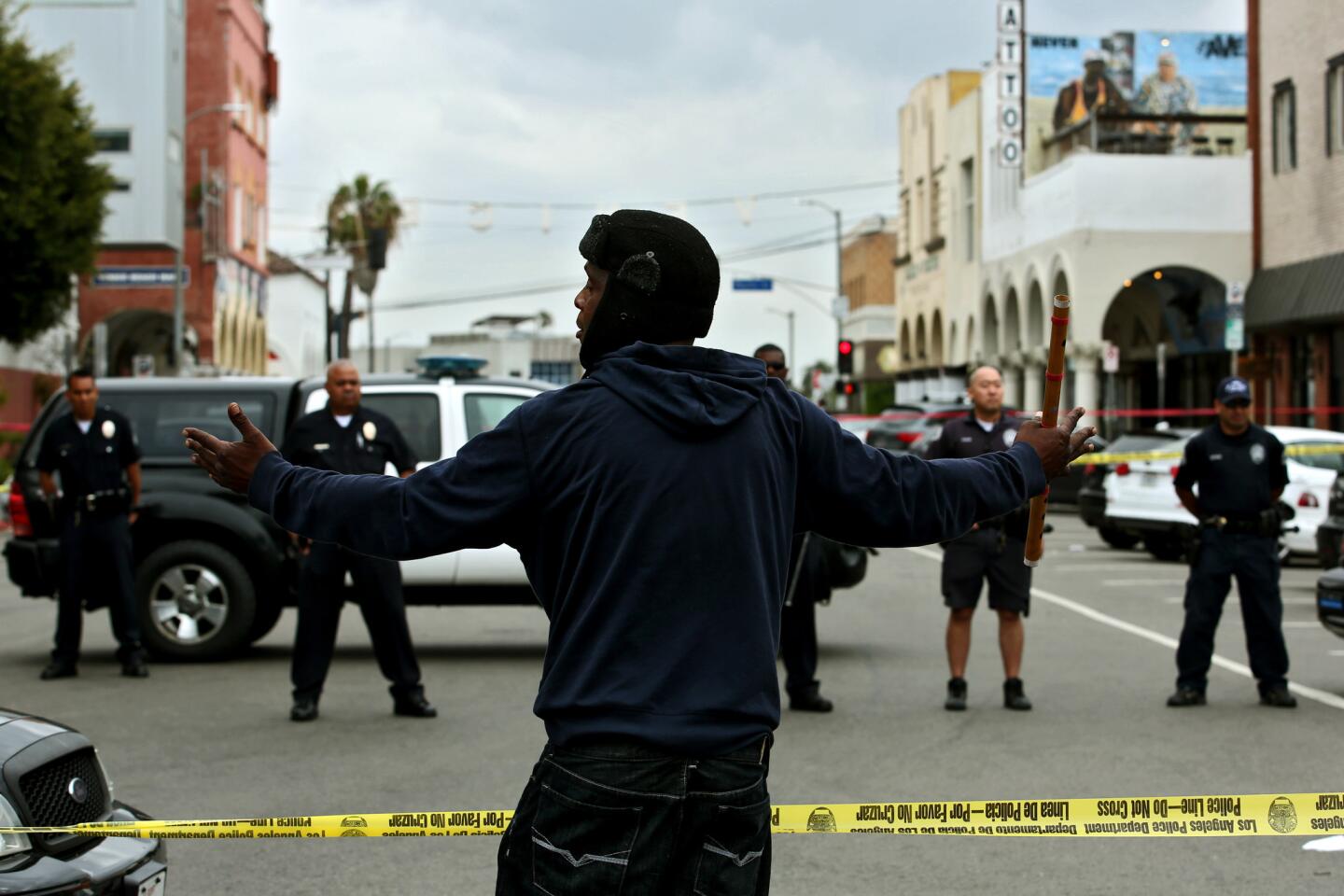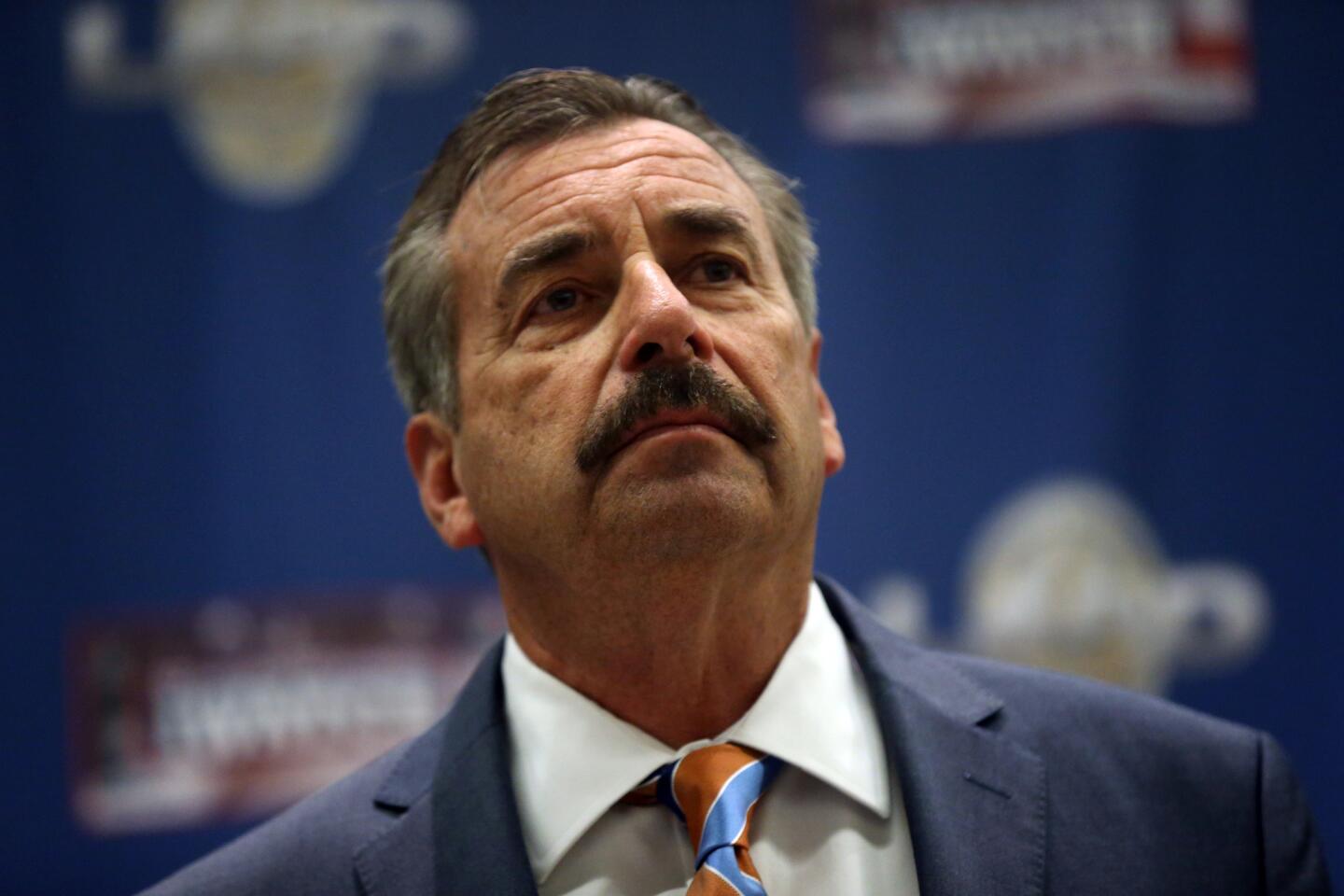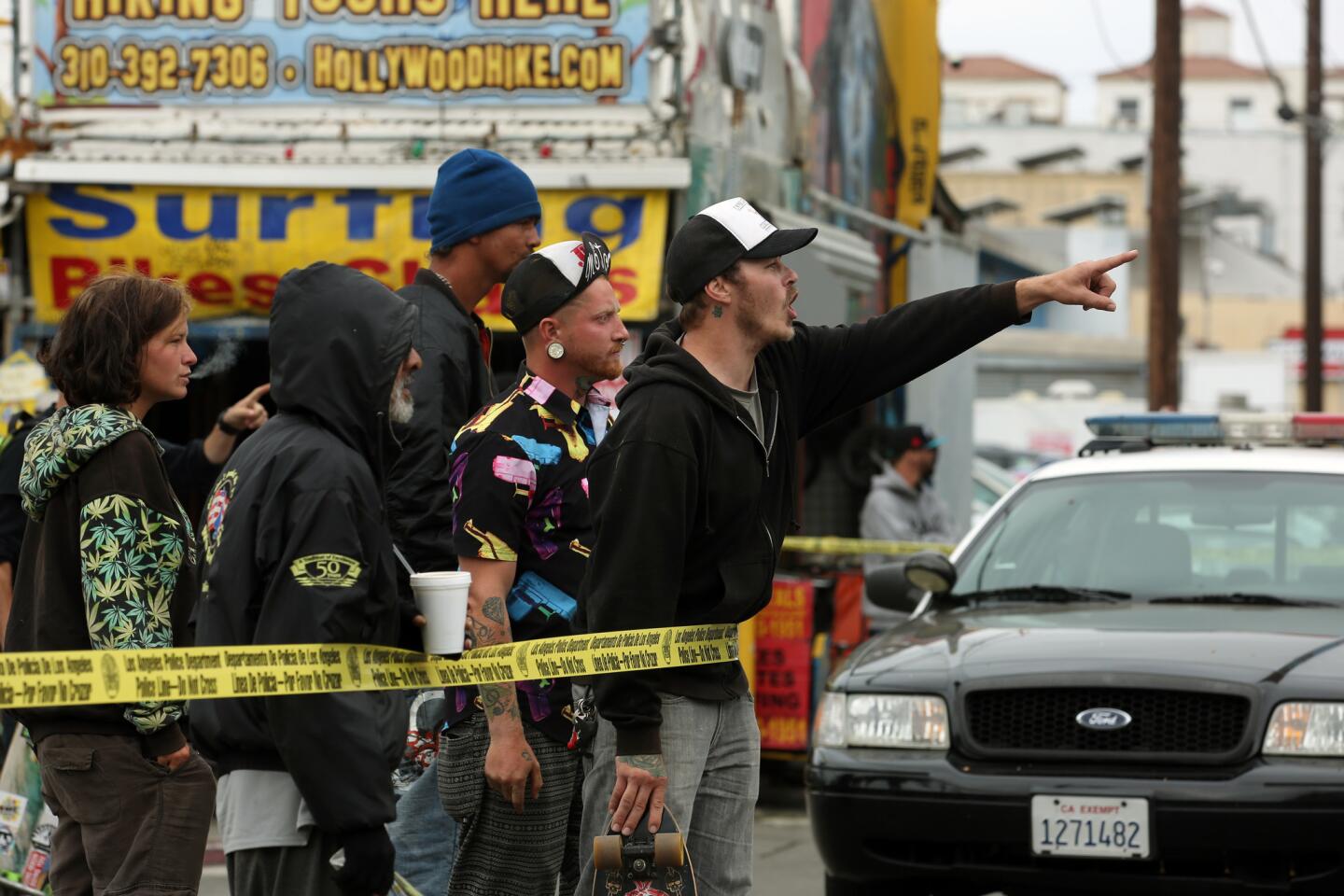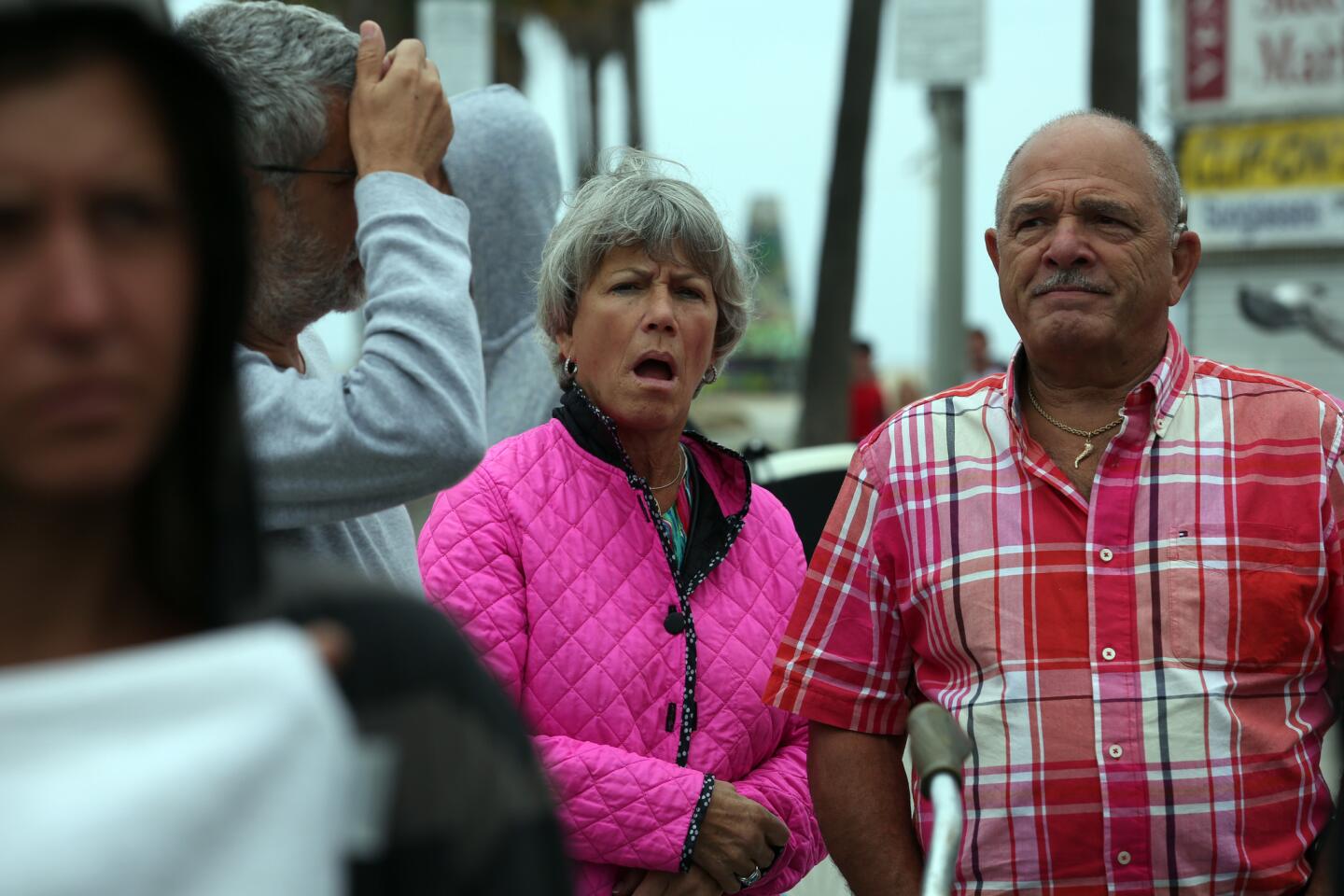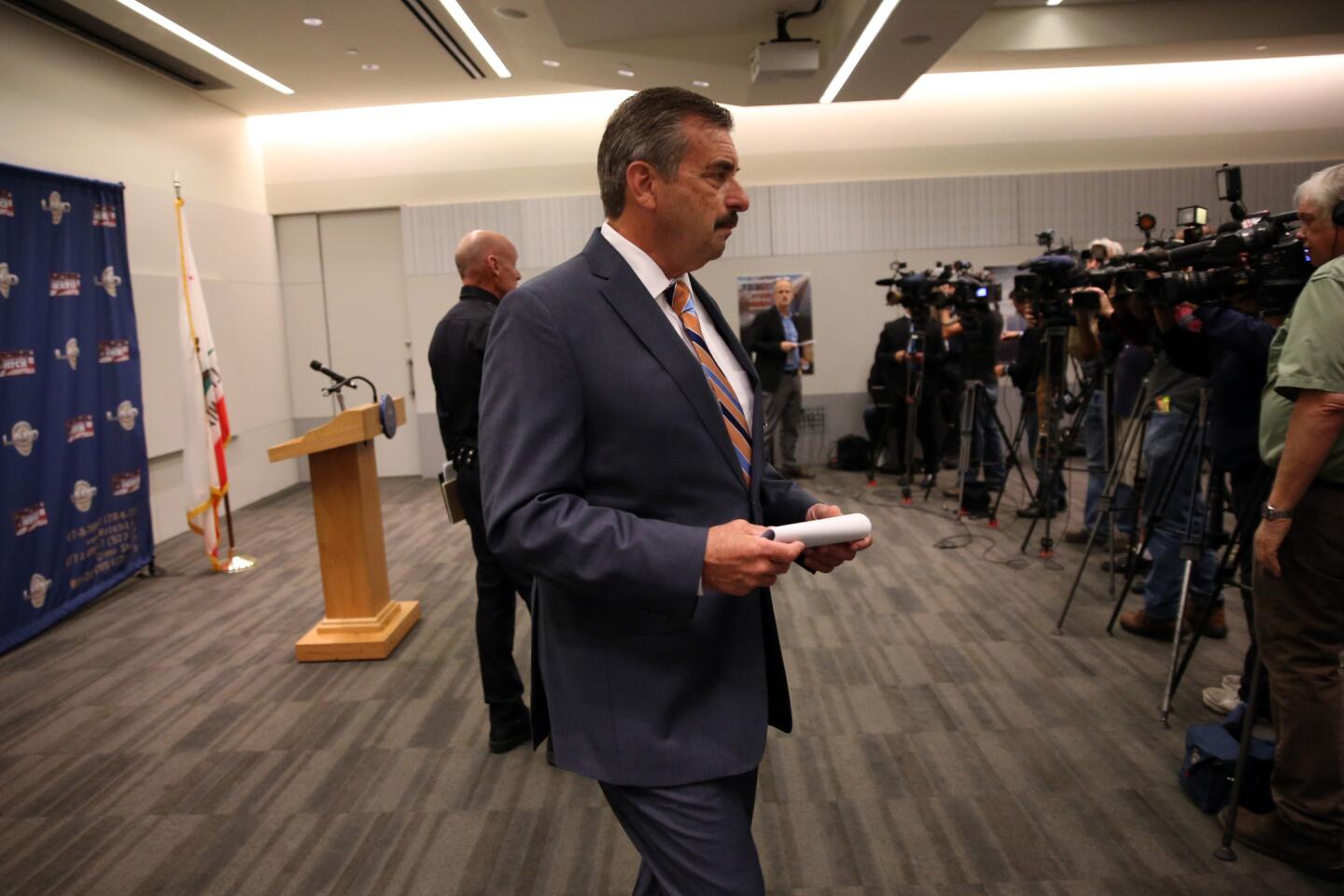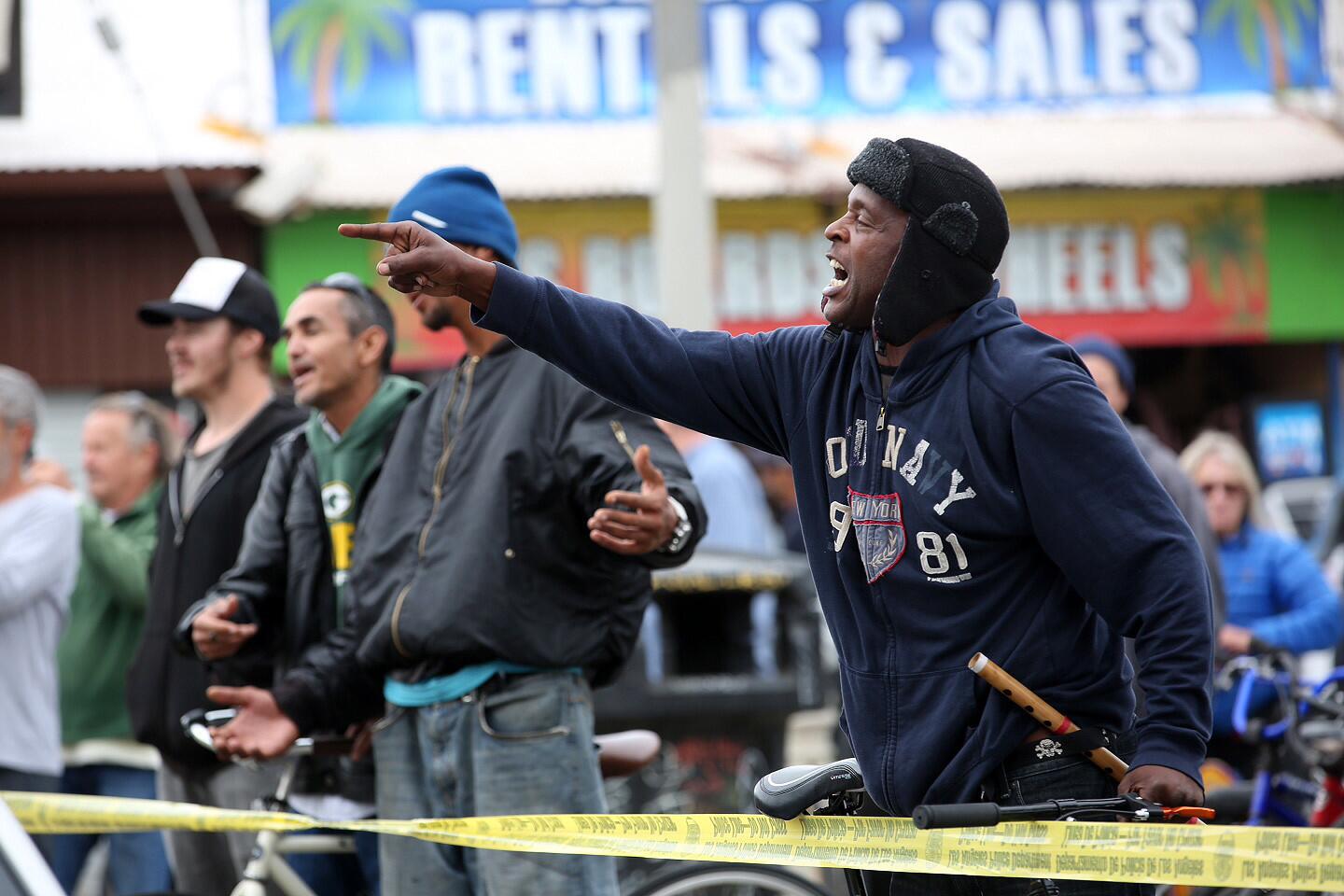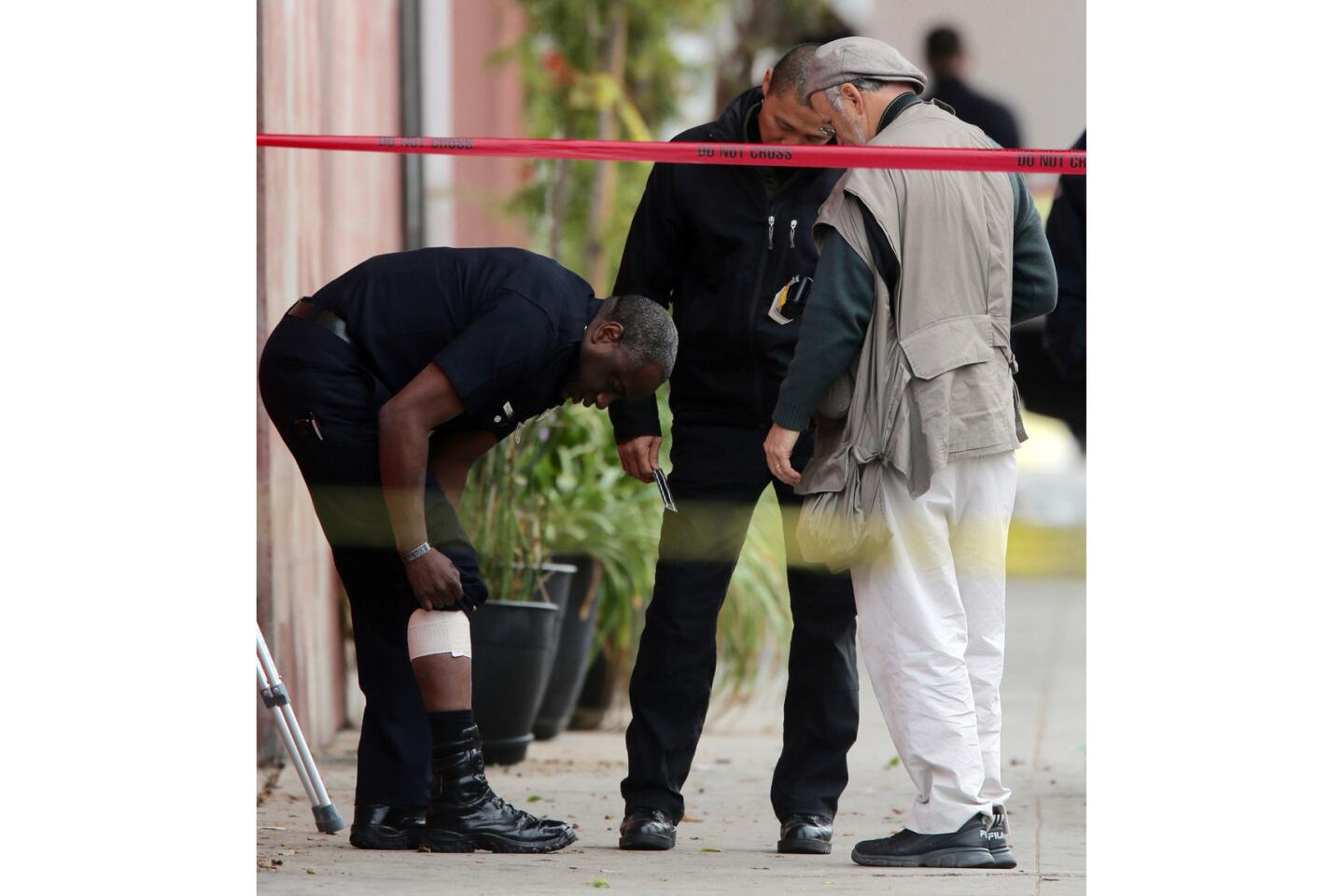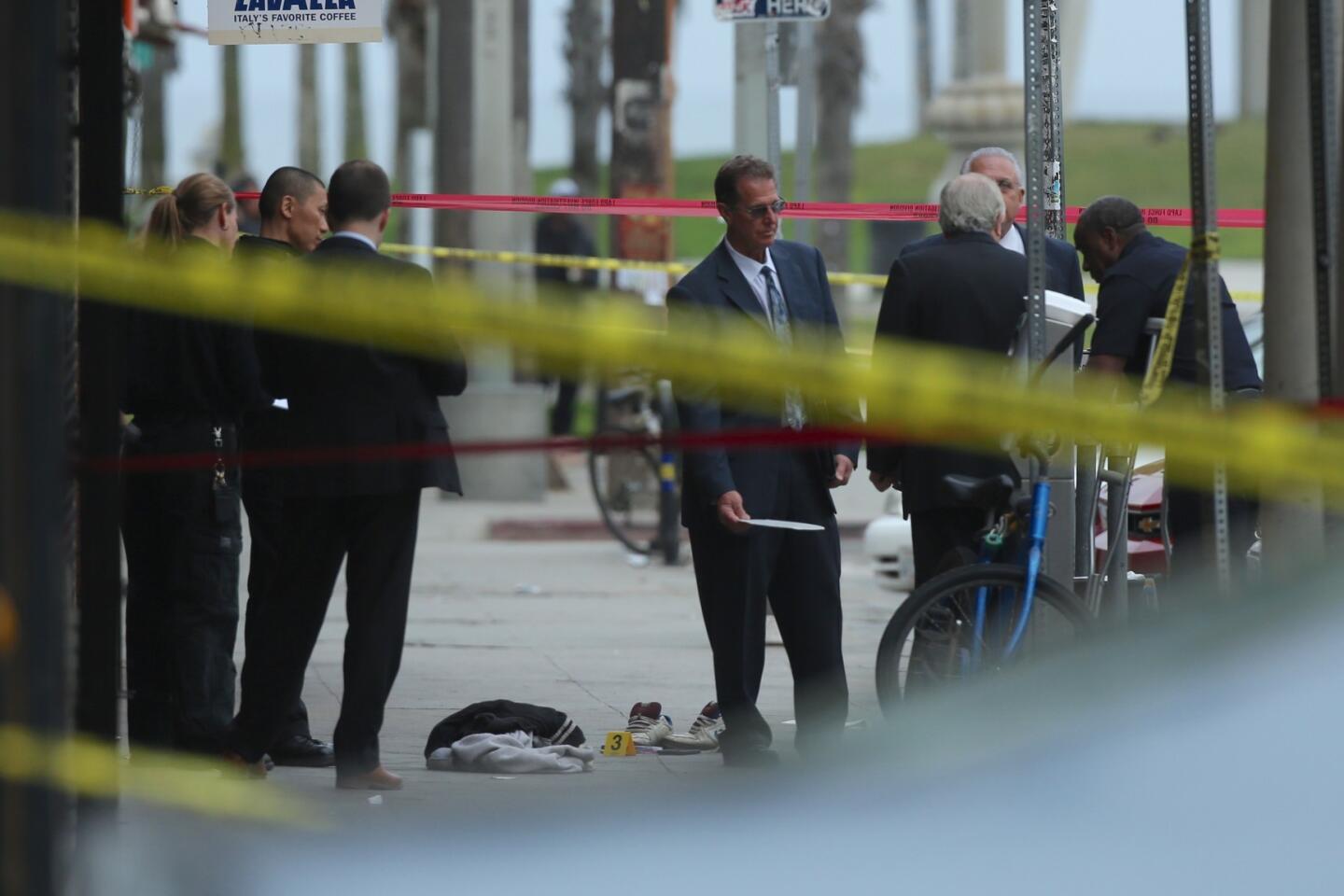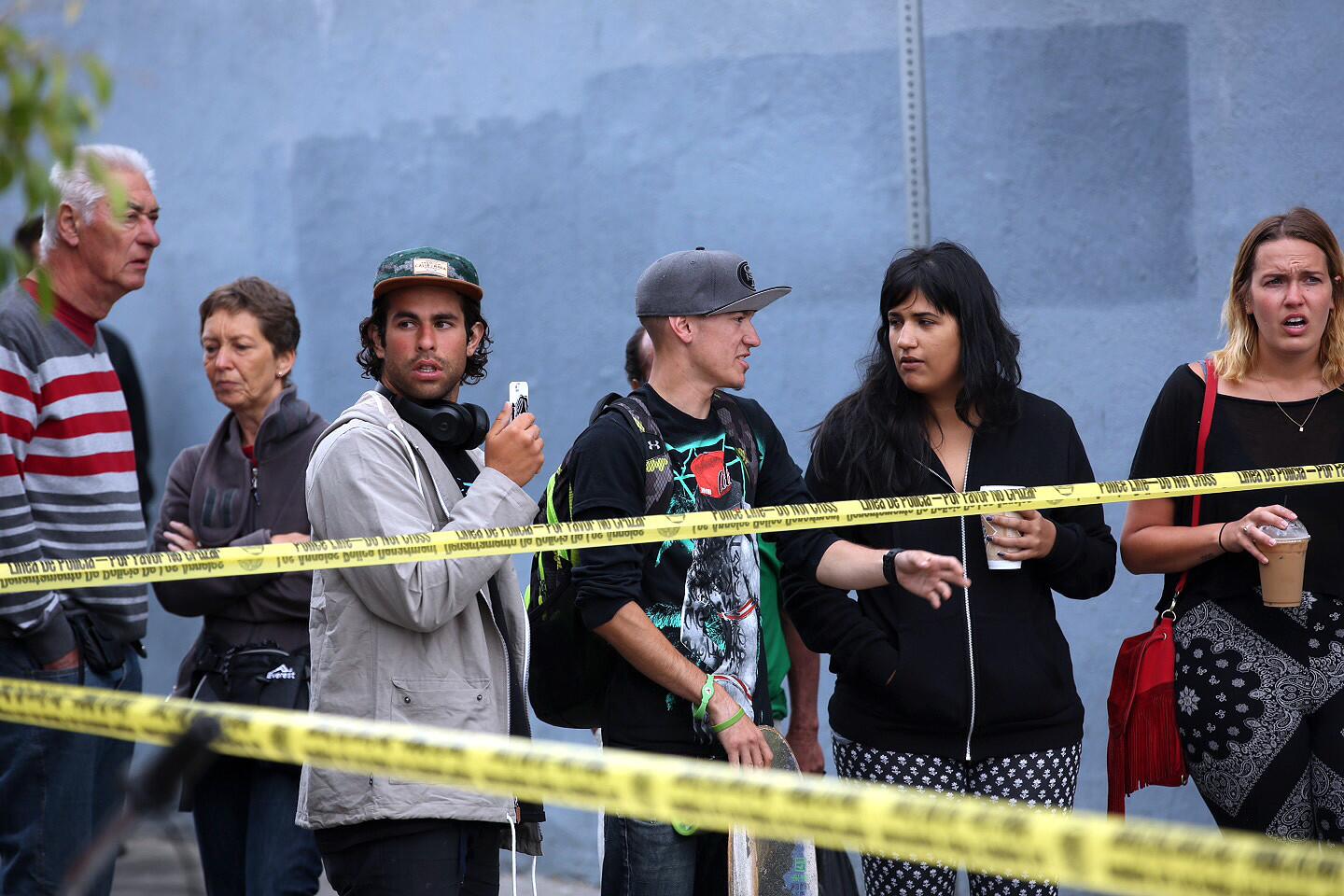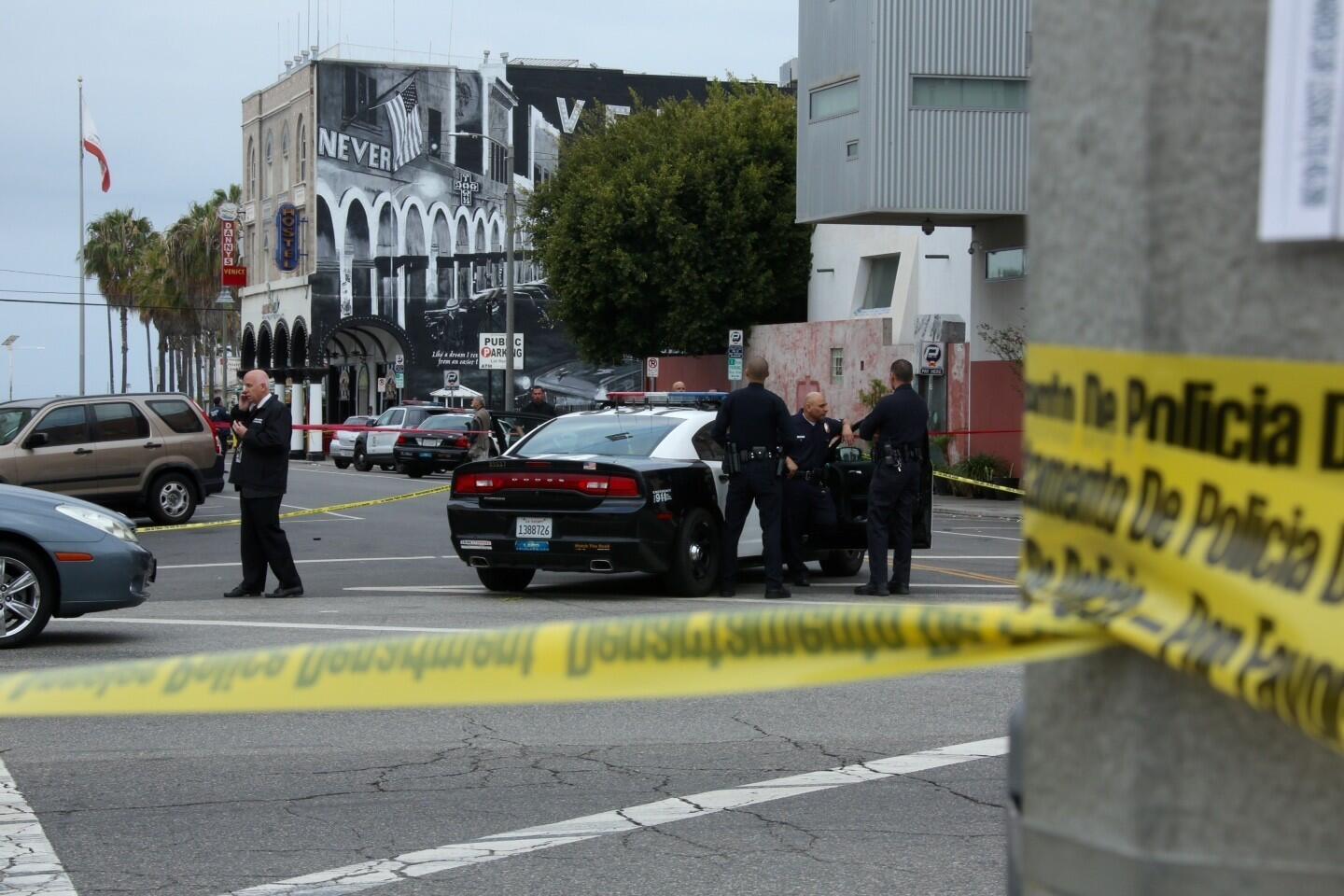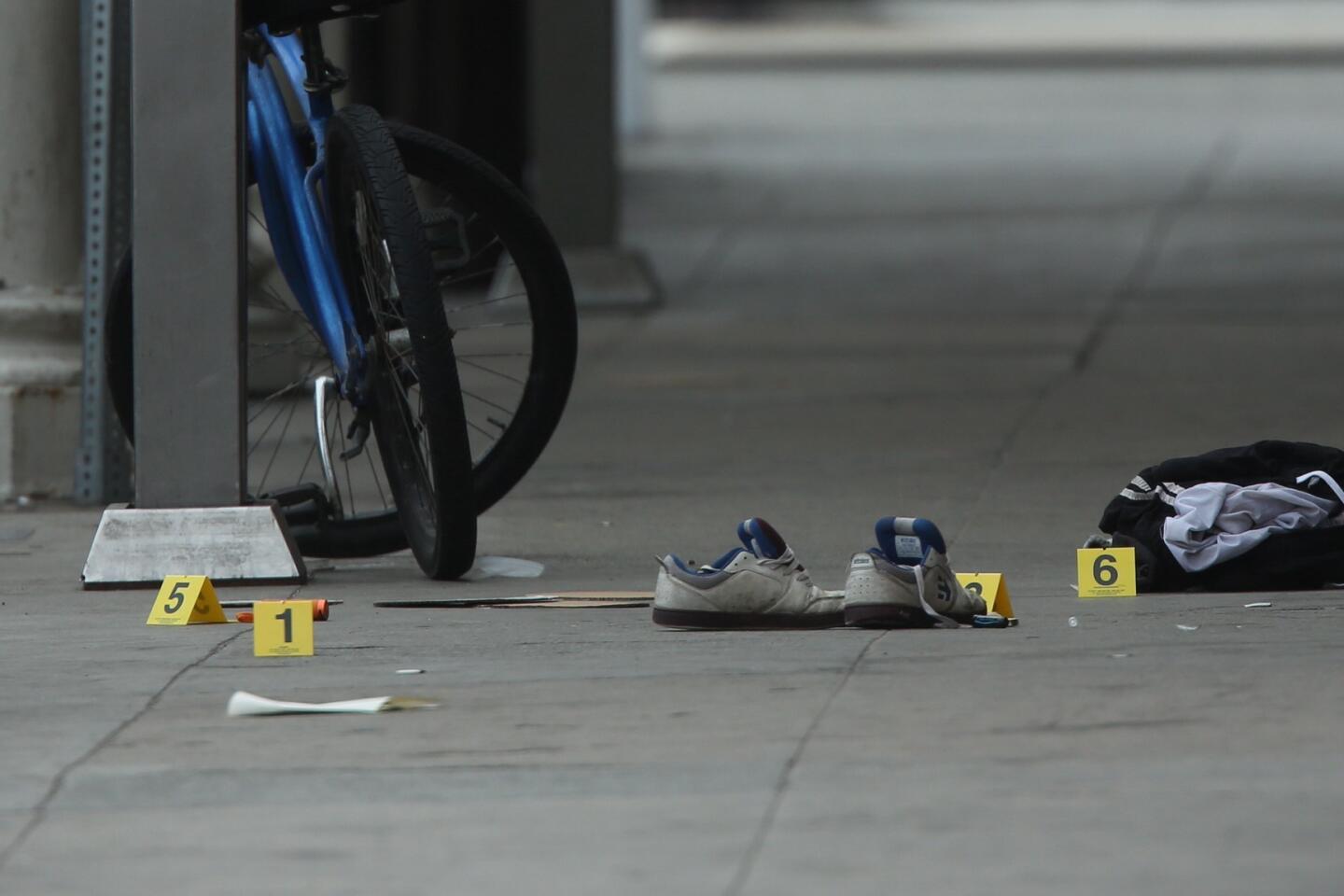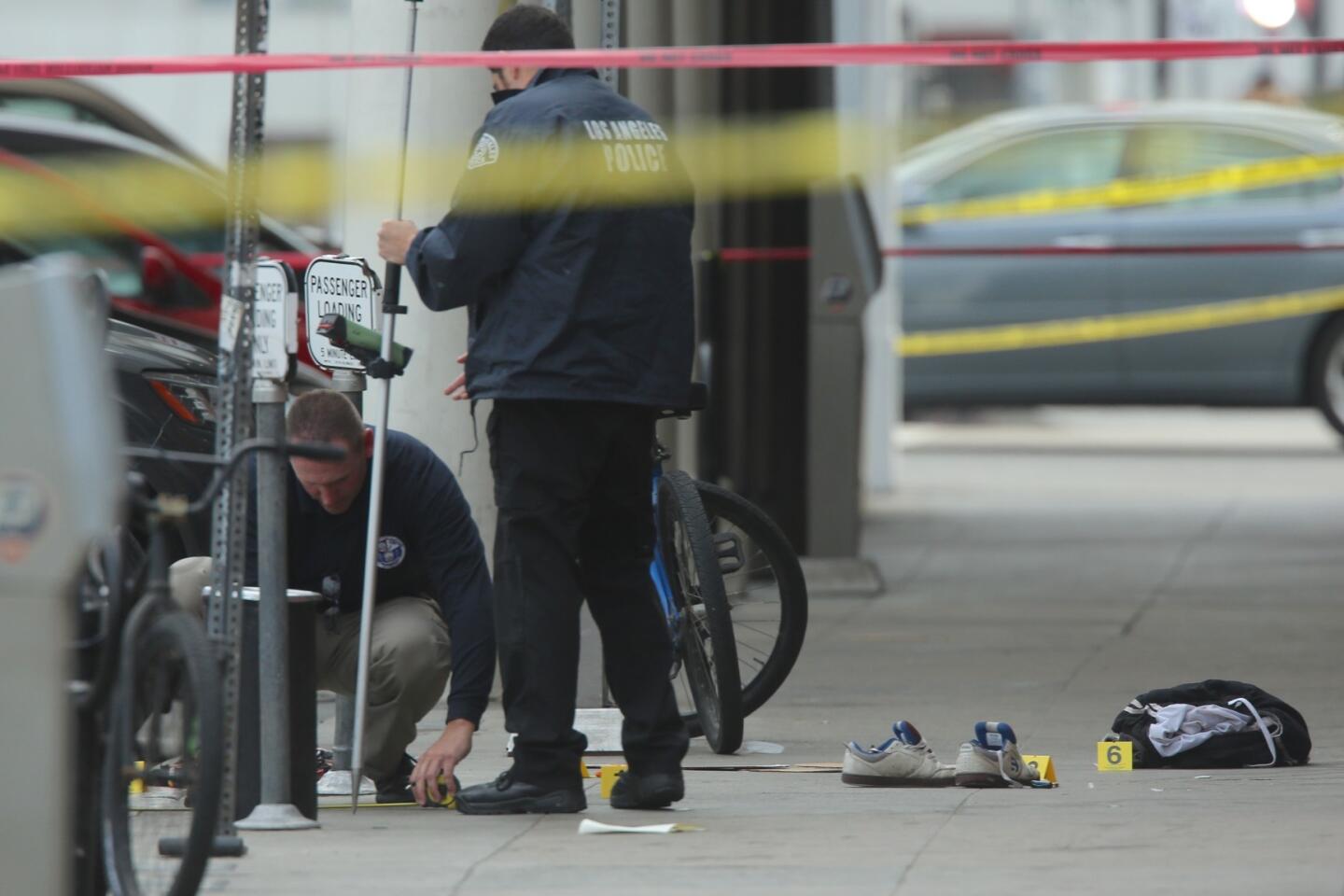A homeless man was dead: Where were Chief Beck and Mayor Garcetti?
I wouldn’t have wanted to be LAPD Deputy Chief Bea Girmala on Thursday night in Venice, where an angry crowd packed Westminster Elementary School to blast police over the fatal shooting of an unarmed homeless man.
“Murder,” protesters shouted when Girmala tried to speak.
“I am not going to say that,” Girmala replied. “The investigation is still ongoing.”
Yeah, well, whatever the brass and courts ultimately call it, LAPD Chief Charlie Beck had already weighed in after seeing a video of the shooting, and he clearly didn’t like what he saw.
“Any time an unarmed person is shot by a Los Angeles police officer, it takes extraordinary circumstances to justify that,” Beck had said. “I have not seen those extraordinary circumstances.”
Translation:
This doesn’t appear to have been a good shooting, in police parlance. The fact that Beck used such strong language tells you that.
And that being the case, he should have gone to the meeting himself instead of throwing an underling to the wolves.
Police shootings of unarmed citizens might once have been so routine that the city’s top officials could pretend they didn’t have time to get involved. But a lot has changed here as well as in Ferguson, Mo., South Carolina and Baltimore.
When Ezell Ford was shot and killed by police last August in South Los Angeles, Beck and other top LAPD brass went into full damage-control mode, meeting with a crowd of concerned citizens at Paradise Baptist Church.
Does Venice not matter as much as South L.A.?
Does Brendon Glenn not matter as much as Ezell Ford, both of them black, and both of them unarmed?
If City Hall wanted to send a message that these shootings matter, two people in particular should have gone to that meeting together Thursday night.
“Where is the mayor?” Mike Neely, a commissioner with the Los Angeles Homeless Services Authority asked from outside the standing-room-only Venice meeting.
“Where is the chief of police?”
They were missing in action, that’s where they were. The first matter the city needs to attend to is the police killing of an unarmed man. That in itself is worthy of the police chief’s and mayor’s attention.
Although we don’t have all the facts, we’re left to wonder why two officers could not subdue one man without sending him to the morgue, why the officer who shot him didn’t use a Taser instead of a gun, and whether an unarmed man could pose such a threat that there was no alternative but to shoot him dead.
But figuring out why Brendon Glenn was killed is only a small beginning. The next step is to address the underlying failures that foster these killings and so many other woes.
I’ve said it before and I’ll say it again:
Being a cop isn’t easy, particularly when you’re asked to deal with the fallout from the city’s failure to help people off the streets and into services that can transform their lives, make neighborhoods safer and even deliver a savings to taxpayers.
Police responding to a disturbance got into a scuffle with Brendon Glenn—who is said to have been intoxicated. Glenn ended up dead.
It happens too often.
Chronic homelessness is rampant in Venice. The first thing to consider, when there’s a call about a disturbance near the boardwalk is that it might involve someone who’s homeless, mentally ill and/or addicted.
The situation might call for backup help, or one of the mental health/police units, or use of a disabling, less lethal weapon than a gun.
And yet, here we are once again, with police as the designated default agency when it comes to homelessness.
“What we see, time and time again, is law enforcement getting dumped on because people are frustrated, they’re angry, the cops get called and the streets have become a repository – they’re open-air asylums. What’s really needed is a level of intensive intervention,” said John Maceri of the Ocean Park Community Center.
Maceri said he sees an aging population in his treatment and housing programs, with dramatic rises in the seriousness of disease, with the vast majority dealing with mental and physical ailments, addiction, or all three.
The police are not the answer, and the chronic failure to house and treat people is a disservice to the homeless, and to Venice residents who are justifiably concerned about the effect on their businesses and homes.
A recent report out of City Hall said Los Angeles is throwing $100 million a year at the issue without much coordination or success, to which Garcetti’s response was, oh, don’t worry, we’ve already initiated reforms.
But Garcetti’s Action to End Homelessness is a small bowl of warm mush that could have been prepared in about 10 minutes, as this passage shows:
“The city currently does not have sufficient federal resources to meet the needs of homeless people who are not veterans.”
If the Action to End Homelessness were illustrated, there’d be a little cartoon of a mini-mayor throwing his hands up in surrender as he walks past a growing number of homeless encampments.
I’ve never suggested that ending homelessness is easy or even possible, given the many economic and social factors that drive it, and given the initial resistance that is common among those who are the sickest.
But to point a finger at one level of government or another while tens of thousands of people are curled up in alleys and parks is an abdication, especially when it is crystal clear that the answers are more outreach, supportive housing and follow-through.
The lack of federal money is all the more reason, said Neely, that “we’ve gotta come up with new and innovative ways” to put people into housing.
L.A. County’s Housing for Health program is a good model and a creative approach, using healthcare money to team with nonprofit and private housing suppliers to get people off the streets and reduce overall healthcare costs in the process.
Take it, copy it, grow it. Just because there’s a lack of money doesn’t mean there has to be a lack of political will.
The mayor and the police chief should have been there in Venice. They could have learned. They could have paid their respects. They could have taken their lumps.
And they could have led.
More to Read
Sign up for Essential California
The most important California stories and recommendations in your inbox every morning.
You may occasionally receive promotional content from the Los Angeles Times.
